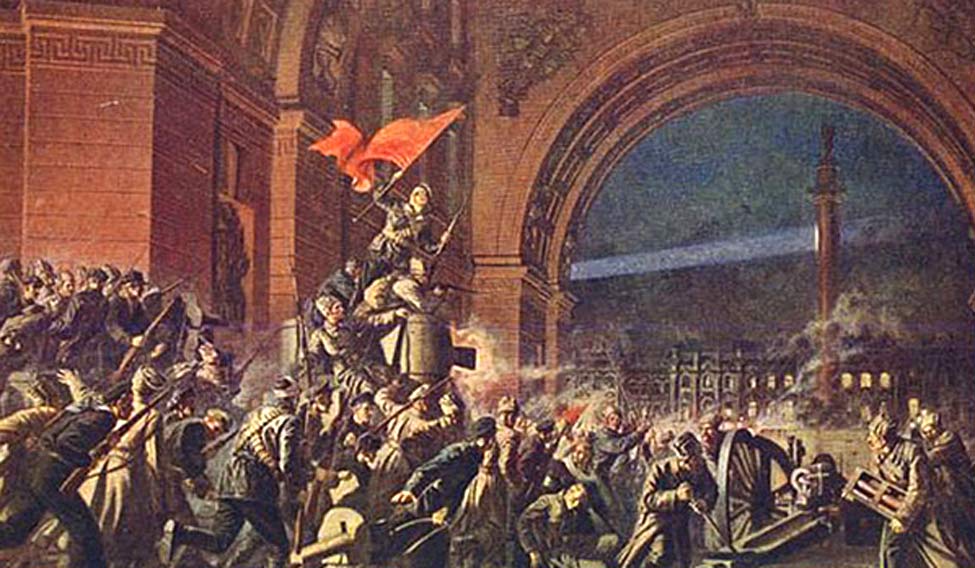Given that the system it gave birth to lasted only a bit over seven decades and has now been gone for over a quarter of century, does the Russian Revolution, even in its centenary year, hold much relevance? But many still know little about what is known as the Great October (or Bolshevik or Lenin's) Revolution, including that it was Russia's second in 1917 and actually occurred on November 7.
Though this discrepancy in days can be explained by the fact that Russia was then using the Julian calendar, which left it 12 days behind the rest of the world, which was on the Gregorian, there are many more issues that cause confusion.
Soviet originally was a political institution being the Russian for council, and only later became the country's name (and a noun/adjective for its government and people), or that the Bolsheviks were the Russian Social Democratic Labour Party's majority faction till 1912 when they finally split to form a new outfit, which named itself the Communists in 1918.
But these minutiae apart, the Russian Revolution—like other great historical events—retains relevance, for in discerning its causes, its course and in its legacy, there are many significant lessons for all.
For revolutions may not be as spontaneous as thought, being the outcome of resentment over injustices or grievances simmering over time, but also owing their genesis to the power of ideas and political geniuses. And then, they never happen in a vacuum and their course and impact may be influenced by happenings or decisions elsewhere too.
But, above all, the prime lesson is that history, unlike what many believe (including in the Indian context), must not to be viewed as a collection of good or bad people or events, but as what it teaches us about the human condition and human nature as exemplified by actions, reactions and resolve. Much can be found here on these fronts.
Reams have been written about the Russian Revolution, and, leaving alone the literary treatment as in Boris Pasternak's Doctor Zhivago (1956) or Mikhail Bulgakov's The White Guard or even George Orwell's Animal Farm (1945), these can be divided into three broad areas.
Firstly, there are recollections of participants like American John Reed, who was sent to cover it but joined in, and described it with brio in his stirring Ten Days that Shook the World (1919)—the basis of Warren Beatty-starrer Reds (1981)—Leon Trotsky's The History of the Russian Revolution (1932) or even of external observers (who might have also been trying to arrange its failure) like British diplomat R.H. Bruce Lockhart in Memoirs of a British Agent (1932).
Then, there are the polemics by those ideologically opposed to Marxism or had become opposed to it following its subsequent form and development under Stalin, say American ex-socialist Max Eastman, who had sent Reed to Russia. His Reflections on the Failure of Socialism (1955), however, does some justice to Vladimir Ilyich Ulyanov Lenin who is termed a "great political genius", being "independent, alert, flexible, cunning, alive to new developments."
Finally, there are more nuanced histories by some leading Western academicians, which make copious use of Russian archives accessible after the Soviet Union's fall.
The Russian Revolution, either by American historian Richard Pipes (1990), or Australian academician Sheila Fitzpatrick (1982, and revised editions 1994 and 2007) or British historian Robert Service (1993) are good overall accounts, while there are several dealing with one particular facet—the German plan to destabilise Russia by arranging Lenin's return—is told in Catherine Merridale's Lenin on the Train (2016).
Two recent works helpful for those seeking an accessible account of why and how the Bolshevik revolution took place, why it became so violent and what its legacy is are British historian Orlando Figes' A People's Tragedy: The Russian Revolution—1891-1924 (1996, centenary edition 2017) and his compatriot S.A. Smith's Russia in Revolution: An Empire in Crisis, 1890 to 1928 (2017).
Both place the Revolution's origins in the crises stemming years back, the lack of any reform under Tsar Nicholas II (r. 1894-1917), especially after the 1905 Revolution, the dislocations of World War I and the extreme backwardness and polarisation that prevented any liberal and moderate force from emerging.
And while politics predominates, both Figes and Smith also incorporate economic and cultural facets, add personal perspectives, to the big picture and take a wider view than just Moscow and St Petersburg.
They also address the Revolution's relevance in not only understanding today's Russia under Vladimir Putin but also more generally. As Smith says, his work also "aims to offer some insight into the nature of power: How the determination to continue to rule in the old way can lead to the collapse of an entire social order or how those seeking to create a better society become corrupted by their determination to hold on to power at any price".
Does the latter seem familiar?
Views expressed are personal.






